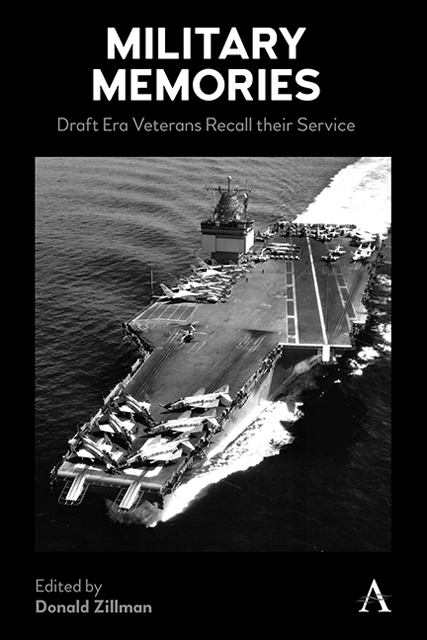Chapter H - Donald Zillman
Published online by Cambridge University Press: 13 January 2023
Summary
I start with family memories that date back to the Civil War. Three generations of Beneckes and Zillmans had seen some form of military service before I needed to address my own military service in 1966–69. In 1861, Louis Benecke was a recent immigrant from Germany to Missouri when the Civil War began. Louis joined the Union Army and fought the Battle of Shiloh, was captured by Confederate forces, released after six months and continued service for the Union cause. That background set the stage for a lifetime of law practice and government leadership in his home town of Brunswick, Missouri.
His daughter Luci married Christian Zillman. Christian had attended the United States Naval Academy at Annapolis for two years but then withdrawn for further civilian education leading to a law degree and a career in law practice in Chicago. Christian was too old for the WW I draft. Our WW I family veteran was my grandmother's second husband, William Mack. Uncle Bill served in General John J.Pershing's American Expeditionary Force.
Christian and Luci's oldest son, Theodore (after Teddy Roosevelt) was born in 1905. He was 12-years old when America entered WW I. He was certainly old enough to appreciate the American involvement in the War and the fact thar he might someday face military service. Before then, however, he had graduated from the University of Wisconsin, joined the family law practice, suffered through the Great Depression and in 1936 married my mother, Helen.
On Pearl Harbor Day, December 7, 1941, Dad was 36 and Mom was 28. Congress had reinstated the draft in Fall 1940 after the German blitzkrieg had conquered France in little more than a month. Young American males who had survived the Great Depression now faced participation in war against two of the world's major military powers.
Dad's age left him out of the first draft calls and discouraged him from immediately volunteering. Within two years, however, it was clear that the draft would need to reach men in their late 30s or older. Dad was inducted into the United States Army and underwent basic training with boys and young men half a generation younger than he was at Fort Benning, Georgia. Dad's athletic skills saw him through basic training. He then opted for Officer Candidate School. Various assignments around the United States followed.
- Type
- Chapter
- Information
- Military MemoriesDraft Era Veterans Recall their Service, pp. 115 - 152Publisher: Anthem PressPrint publication year: 2022

